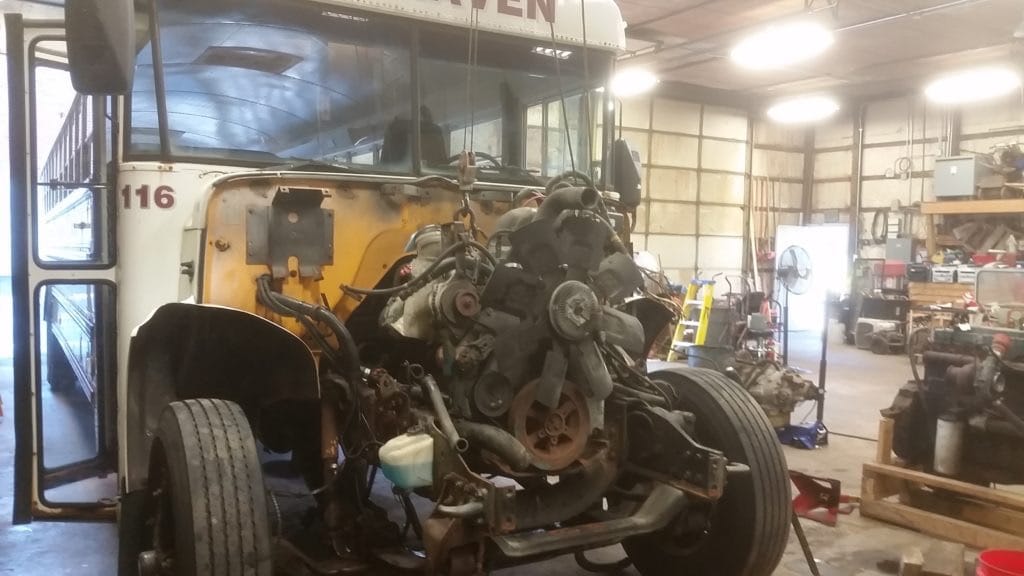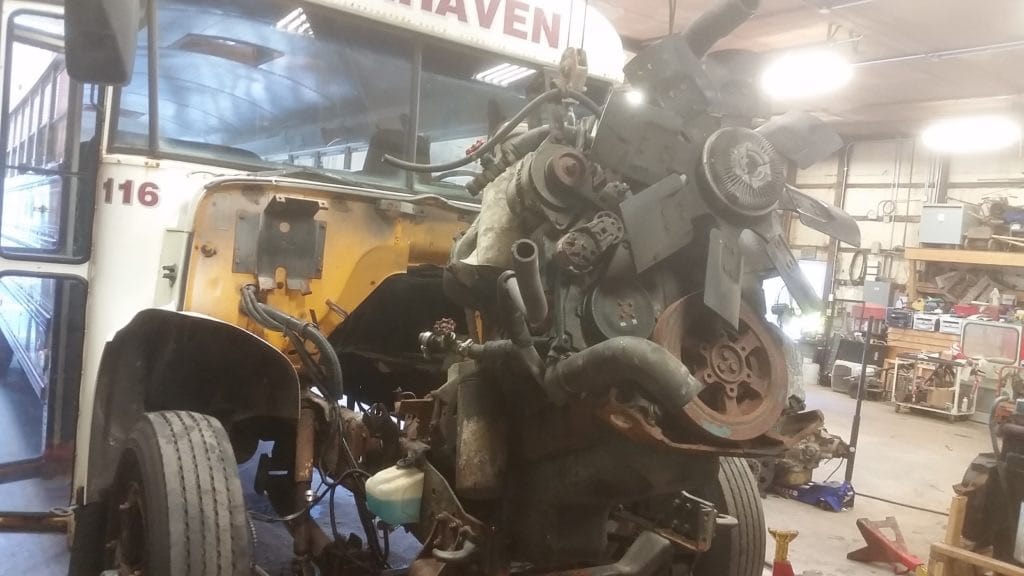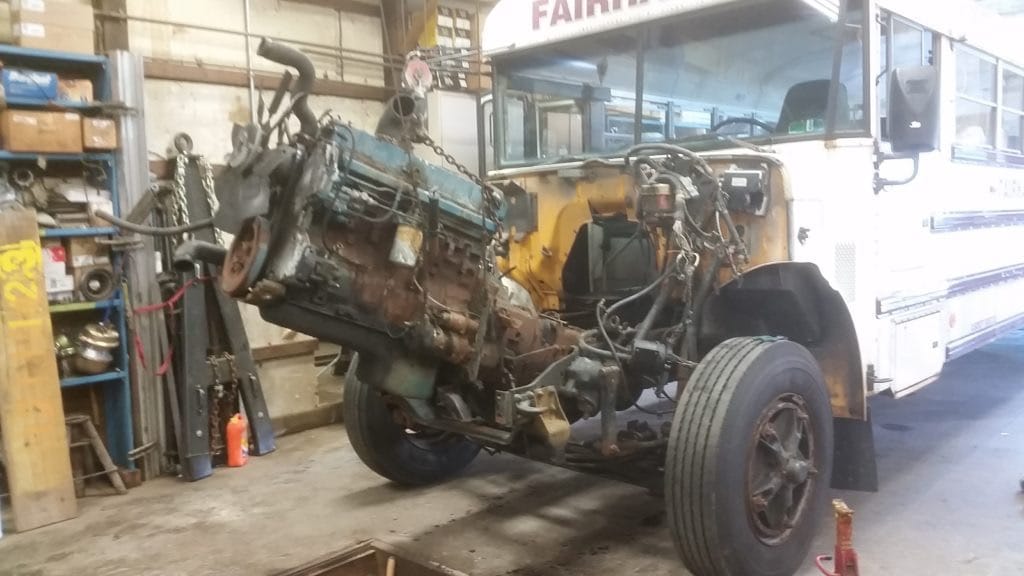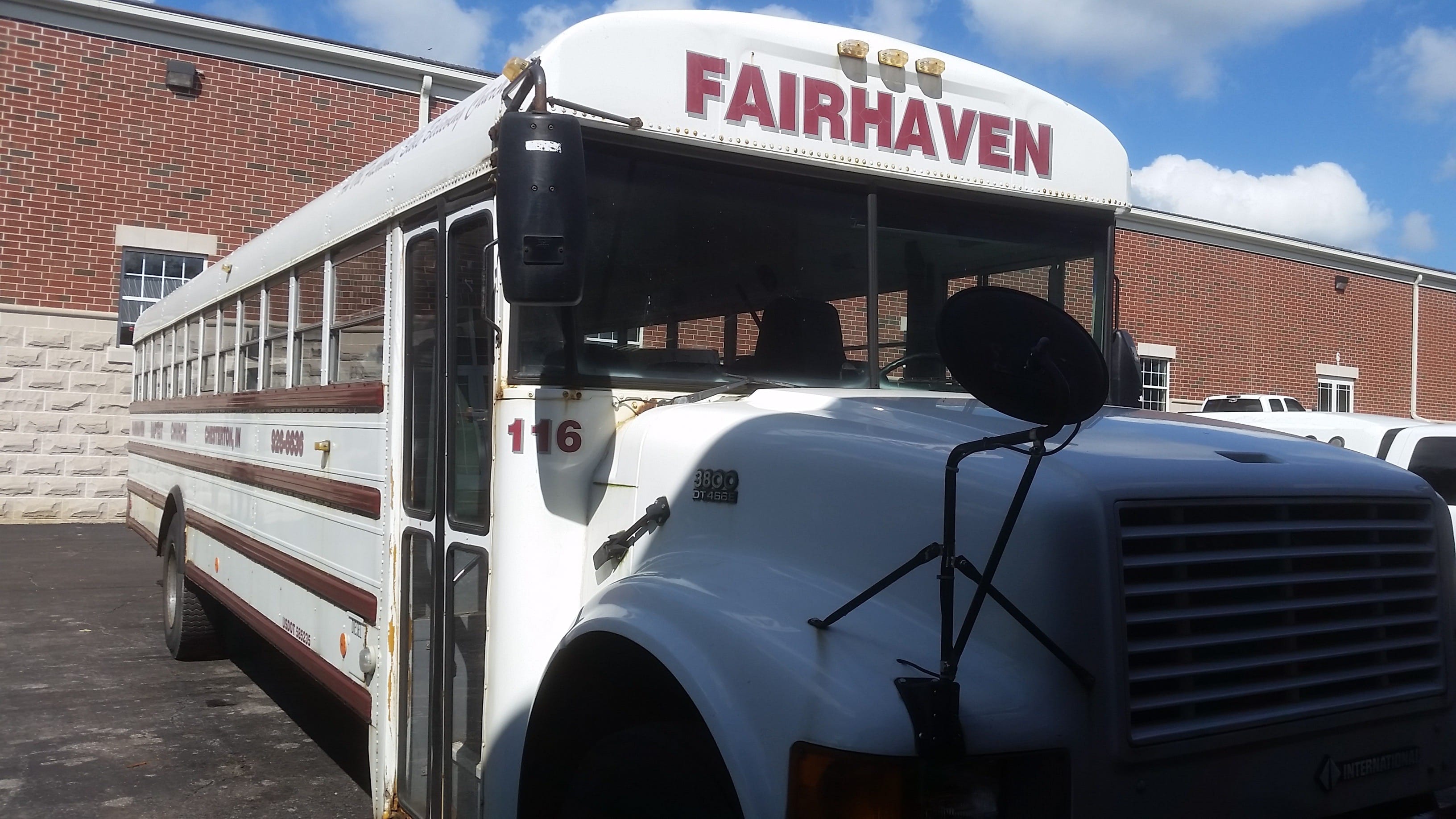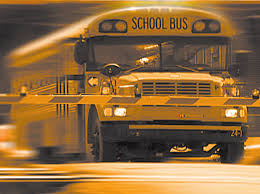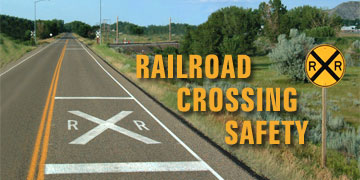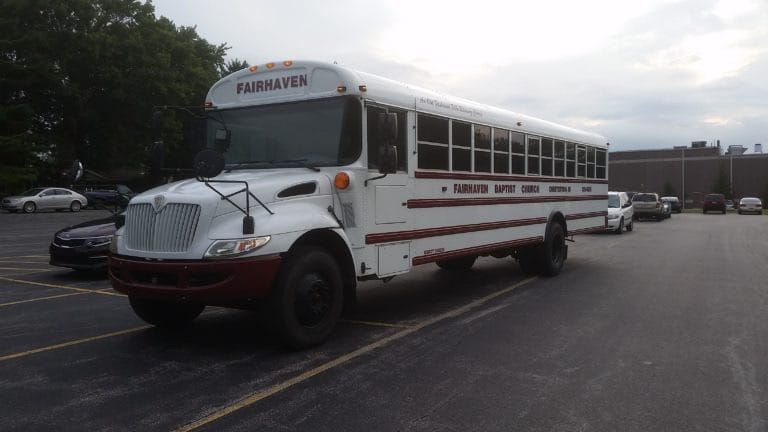Decommissioning of Bus 116—The advantage of having all your bus fleet with a common engine.
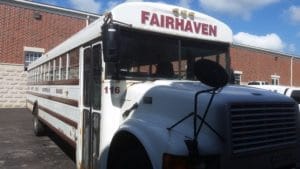 So you have a bus and your bus ministry is growing and you want to add a second or third bus to your fleet. I know it is not always possible to do but it would be worth trying to get a second bus that has the same engine and body that your current bus has. There are many advantages to doing this. I was reminded of this recently as we decommissioned bus 116 which served us faithfully for 12 years. Seems like the problem of the ages that most of us fight with our vehicles is rust and it finally had taken its toll on this bus. So the bus is ready for the junk yard, but wait! Is it still worth something to us? Yes it is. Because all of our buses have the same type engine, we are able to fix other buses with parts that might still be good on this one.
So you have a bus and your bus ministry is growing and you want to add a second or third bus to your fleet. I know it is not always possible to do but it would be worth trying to get a second bus that has the same engine and body that your current bus has. There are many advantages to doing this. I was reminded of this recently as we decommissioned bus 116 which served us faithfully for 12 years. Seems like the problem of the ages that most of us fight with our vehicles is rust and it finally had taken its toll on this bus. So the bus is ready for the junk yard, but wait! Is it still worth something to us? Yes it is. Because all of our buses have the same type engine, we are able to fix other buses with parts that might still be good on this one.
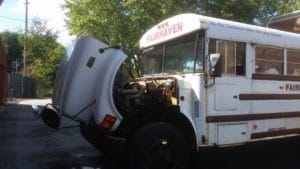
Over three weeks ago one of our other buses was humming down the highway on a Sunday morning heading off to pickup the children when out of nowhere a valve in the engine came loose and fell into the number 6 cylinder. Sadly, we lost an engine. Since the engine to bus 116 was still good we were able to pull the engine out and put it into the broken-down bus. This took some time and though not an easy task, the effort was worth the money saved. A brand new engine would have cost us at least $10,000 and a rebuilt kit with us supplying the labor would have cost about $4,500. So now with some time and effort our broken-down bus will be back on the road again.
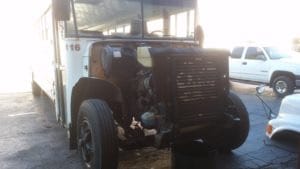 So what other advantages could there be? Troubleshooting a problem is very difficult in the world of manufacturers who love to put as many sensors on a vehicle engine as possible. With these sensors costing over $100 most of the time, you can’t just throw parts at the bus and hope it fixes it. If you suspect a sensor is bad and you have another bus with the same engine then you can switch sensors to see if it is really the culprit.
So what other advantages could there be? Troubleshooting a problem is very difficult in the world of manufacturers who love to put as many sensors on a vehicle engine as possible. With these sensors costing over $100 most of the time, you can’t just throw parts at the bus and hope it fixes it. If you suspect a sensor is bad and you have another bus with the same engine then you can switch sensors to see if it is really the culprit.
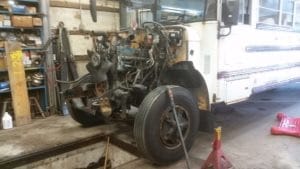
Another advantage of having the same bus is that you begin to learn the problems that a certain make and model has. Wait, can’t you just tell us which bus to buy that doesn’t have any problems? I wish I could, but it doesn’t matter what bus you end up buying. Eventually they are all going to break down. Since some issues are easier to fix, it wouldn’t hurt to do some research and ask around to see which bus make and model might have the fewest problems to deal with. We all are busy, and if we only need to learn one set of quirks and problems we will all be better off.
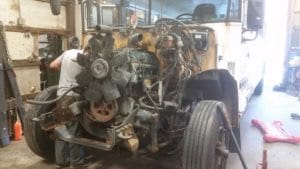
Lastly, as you go to junk “old faithful,” stop and look over the bus to see what little things could be taken off and used on another bus in your fleet: a broken mirror, a heater switch, tires, or seats. Now we all know that churches love to store stuff, but we can’t turn the church property into a junk yard saving every part and piece. As you deal with the bus, you will learn what parts last forever and what parts are prone to failing. Save those few parts and then haul the bus down to the scrap yard. If you are lucky, you might walk away from the scrap yard with $1,000 to put towards the next bus!
Though having similar buses is ideal, it is not always possible. Buses will be donated to your ministry. You may also find a deal that can’t be passed up. In the end, pray about what God wants you to have and do your best to keep that bus rolling down the highway and hedges, compelling them to come in.
